
Kenya’s revolution in beekeeping: Honey without the sting
Across Kenya, a quiet revolution in beekeeping is underway. Far from the hum of traditional honey bees, stingless bees are creating new opportunities for income, conservation, and community health. From custom-built wooden hives to medicinal honey, these small insects are making a big impact—not just for farmers, but for the environment and local communities.
Custom hives, big impact
Ronald Nyange, popularly known as the Chawia Guy, has found a unique niche in the growing stingless bee market.
“I build hives on order from farmers who now prefer these wooden pieces rather than plastic cans,” he explains.
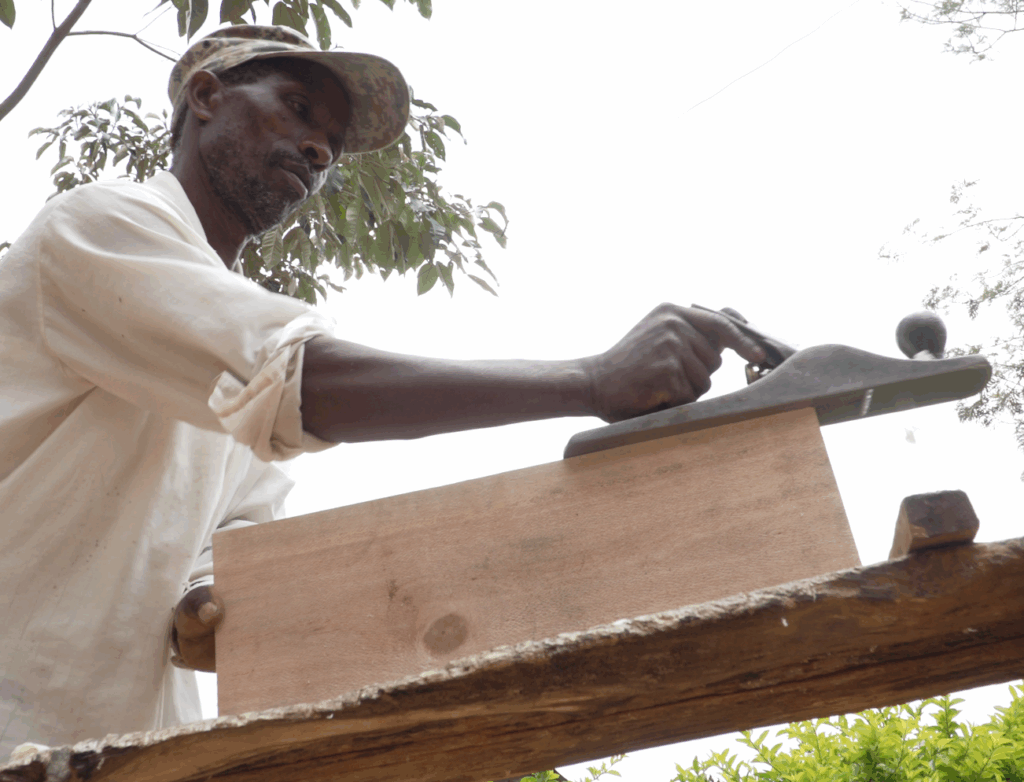
Farmers appreciate these hives because harvesting honey is far easier and cleaner compared to traditional containers. Nyange’s work also supports local economies. He sources timber from local lumberjacks, depending on the number of orders he receives. The result is a win-win system. Farmers receive high-quality hives, and Nyange earns a sustainable income while helping small-scale farmers succeed.
“Over time, my customer base has expanded through referrals,” he adds. “As more farmers see the benefits—both for honey production and income—they are eager to adopt these custom hives.”
Beekeeping requires patience
For young stingless bee farmers, patience and careful learning are essential. Many start by observing experienced farmers, learning how to locate colonies and manage hives. One farmer recalls starting in 2021, guided by a friend already in the trade.
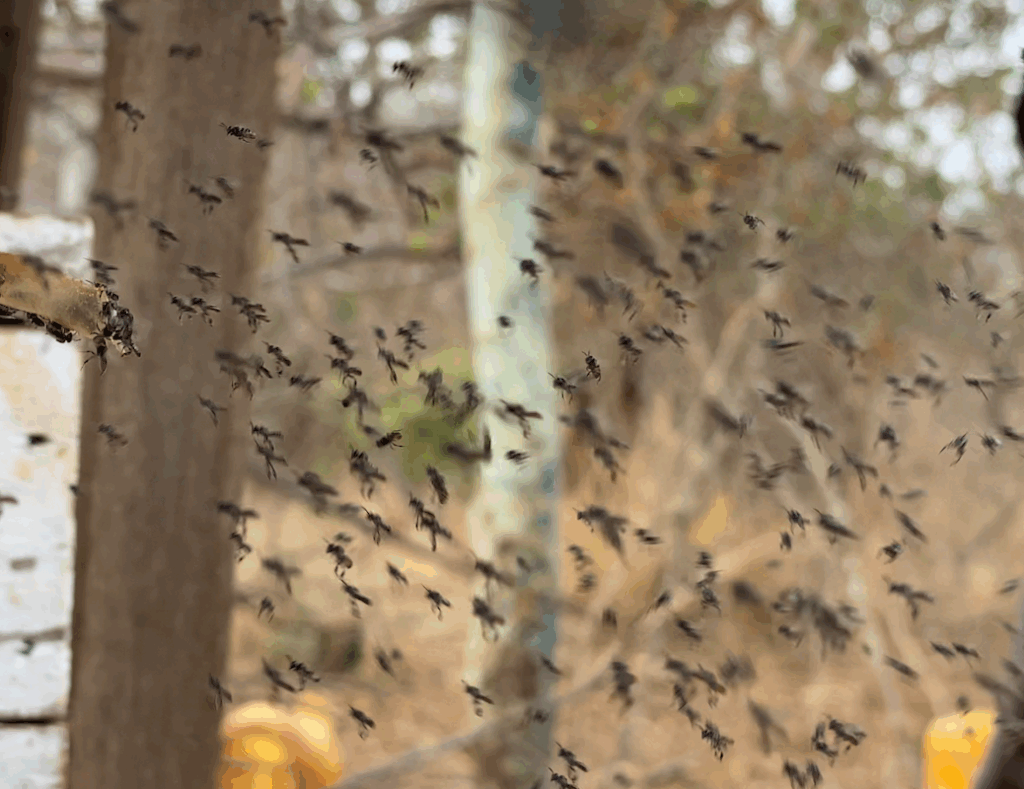
“Hunting for colonies in the forest is the tricky part. They (the bees) prefer old logs and branches, says Andrew Sale. “When we move them to the homestead, we leave them in the logs to acclimatize for two to three weeks before transferring the brood to custom hives.”
Timing is crucial. Experts recommend transferring colonies during periods of abundant flowering, when bees have plenty of nectar, to reduce the risk of colony losses.
Andrew adds that challenges include droughts, which often cause colonies to abandon their hives, and pests such as moths.
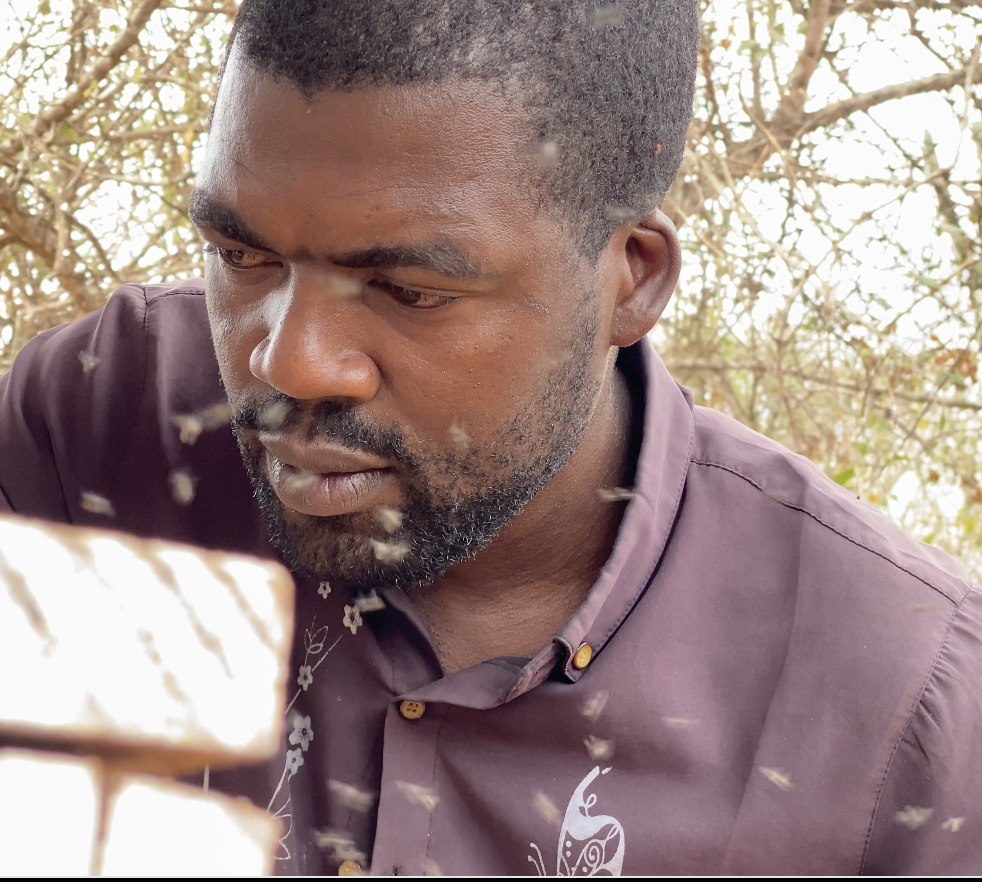
“To prevent attacks, we apply used oil around the base of hive stands. Stronger product marketing and more training would also help us as stingless bee farmers. The International Centre of Insect Physiology and Ecology (ICIPE) has played a big role, offering education and awareness programs. I’ve learned how essential it is to provide water close to the hives so the bees don’t have to travel long distances.”
Business is sweet and challenging
Stingless bee honey is more than just a sweet treat—it is highly valued for its medicinal properties. A liter sells for approximately $20, and honey from different hives can vary in flavor and appearance depending on the types of flowers the bees visit. So, the honey can be either sweet or slightly bitter, but at the end of the day, it is very nutritious..
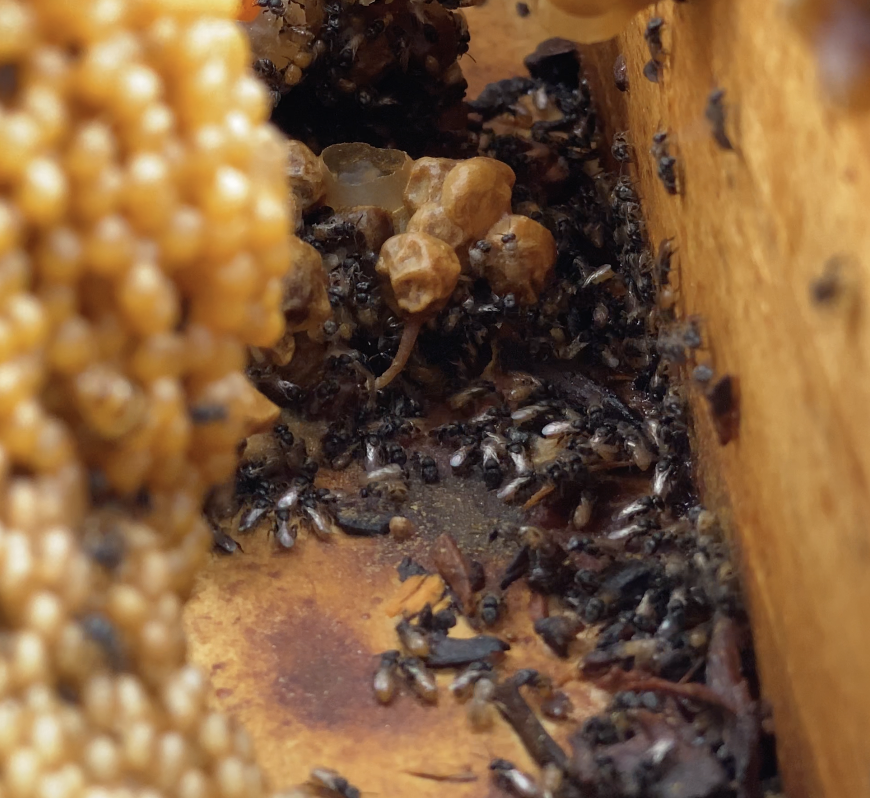
However, beekeeping comes with challenges. Drought can drive colonies away. Pests such as moths threaten hives. Farmers have developed practical solutions, including applying used oil around hive stands and ensuring water is available nearby so bees don’t travel long distances. Additionally, effective marketing and product education are crucial to expanding sales, especially in new markets.
Conservation at heart
For some farmers, stingless bee farming is as much about saving the species as earning a living. Mwanyombo, a longtime beekeeper, began keeping these bees out of concern for declining populations due to deforestation.
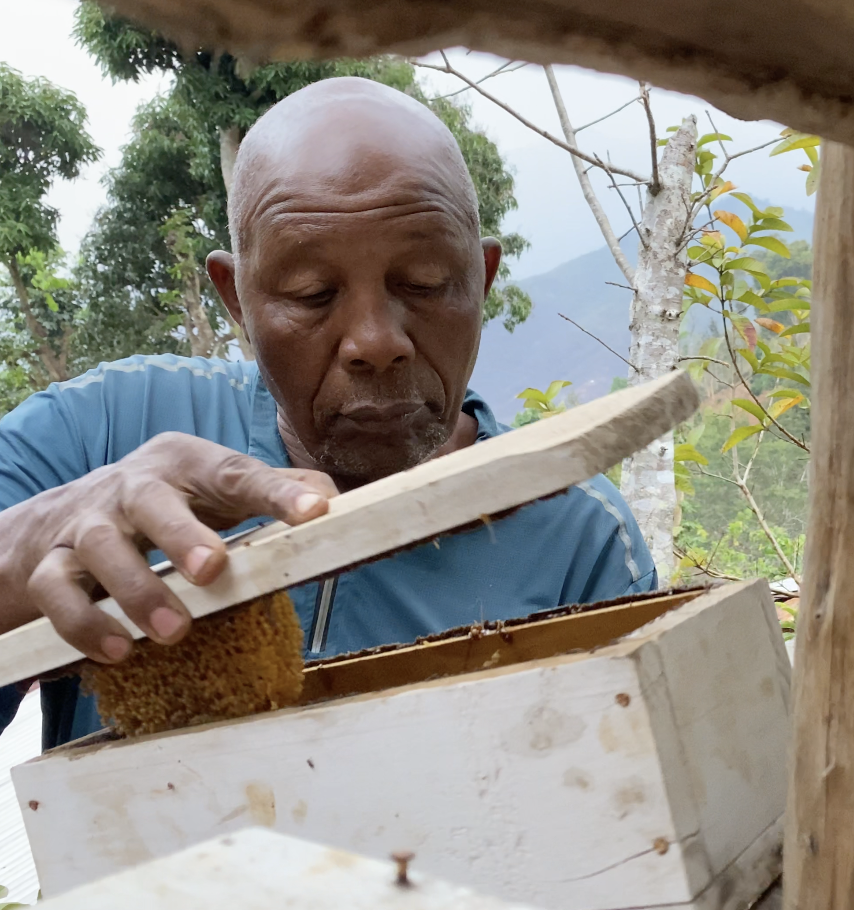
“Even species that produce little honey are vital; they are essential pollinators and help maintain environmental health,” he says.
His family also benefits directly from the honey, using it as traditional medicine to treat colds and flu among children in the neighborhood. Mwanyombo’s approach demonstrates that small-scale beekeeping can simultaneously promote health, conservation, and income generation.
The science of stingless bees
Dr. Kiatoko Nkoba, a scientist with ICIPE, emphasizes the broader ecological and economic benefits.
“Stingless bees outperform honey bees in pollinating crops like avocado, mango, macadamia, watermelon, and cucumber, improving both yield and fruit quality.”
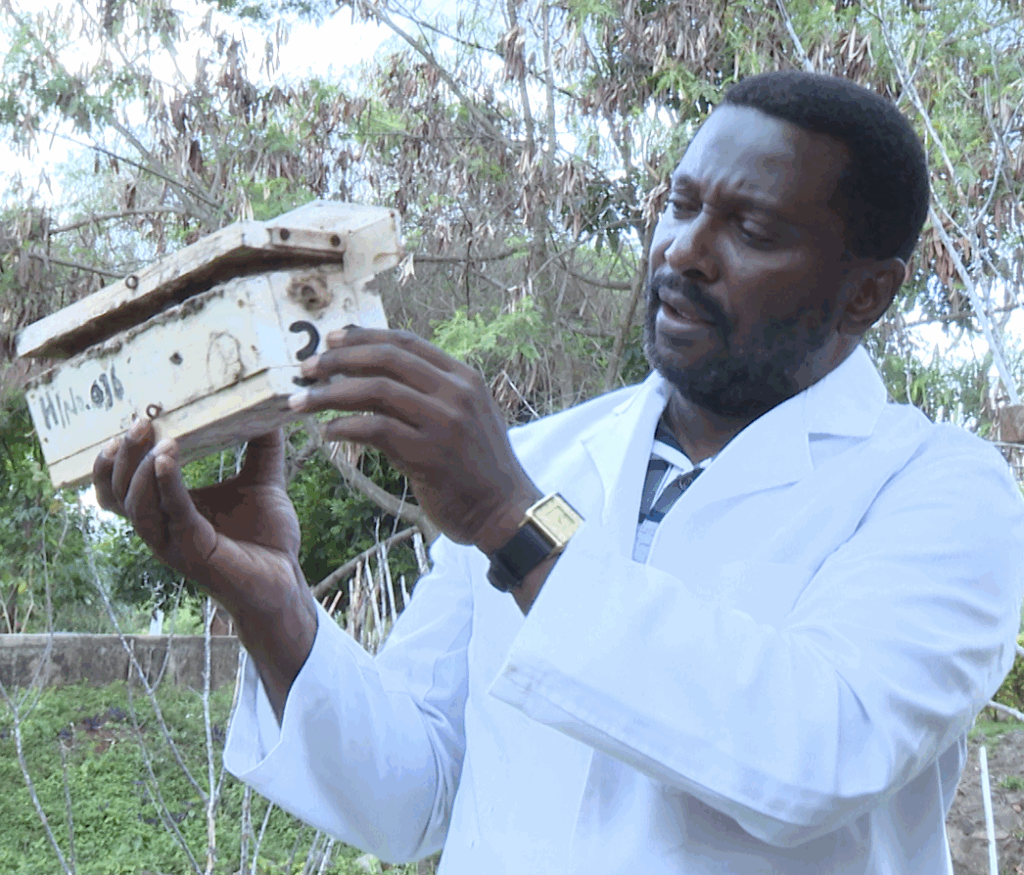
Stingless bees are smaller and lighter than traditional honeybees, allowing them to access tiny flowers that larger bees cannot, and maneuver easily around dense flower clusters, which increases pollination efficiency. They visit flowers consistently and for longer periods, making them highly effective at transferring pollen. Being stingless, they are safe to keep around people and children, enabling farmers to integrate them into gardens and farms without risk. Certain species are especially skilled at pollinating crops like cucumbers, tomatoes, and indigenous flowers due to their body shape and behavior. Additionally, they are resilient and adaptable to local environments, including tropical and semi-arid areas where some honeybee populations struggle, making them reliable pollinators. Many stingless bees are also active throughout the day, even in slightly cooler or wetter conditions when honeybees may remain in their hives.
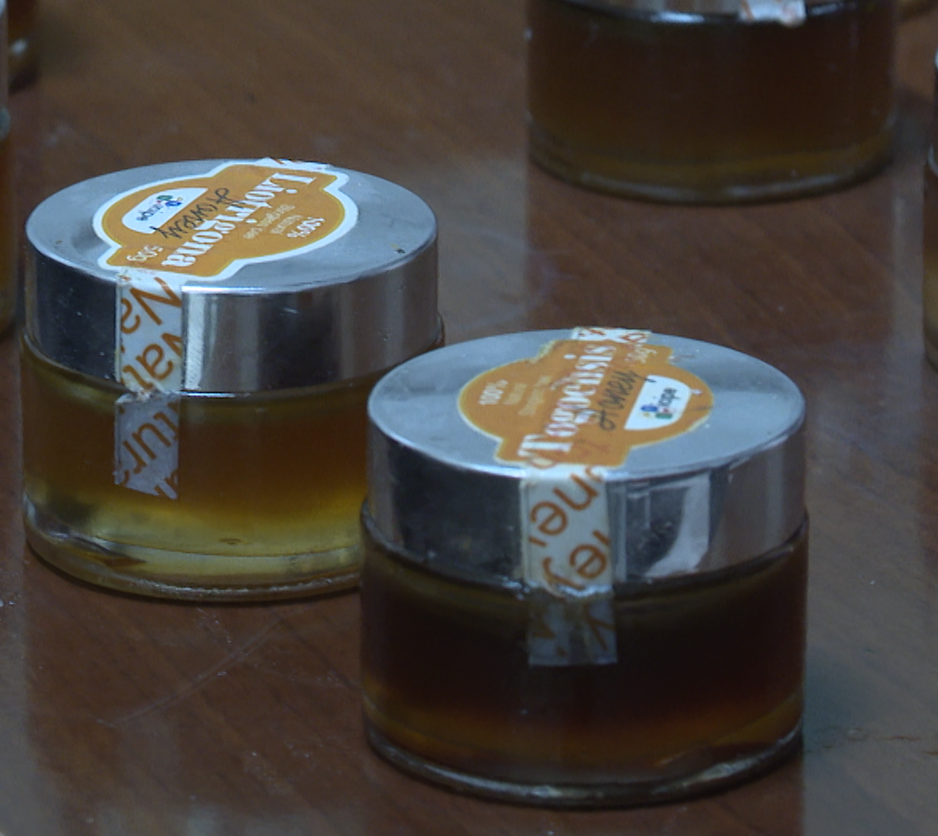
Through training programs, starter equipment, and collaborations with community forest associations, ICIPE helps farmers manage colonies effectively, commercialize honey, and maintain sustainability, enabling farmers to access training, equipment, and markets.
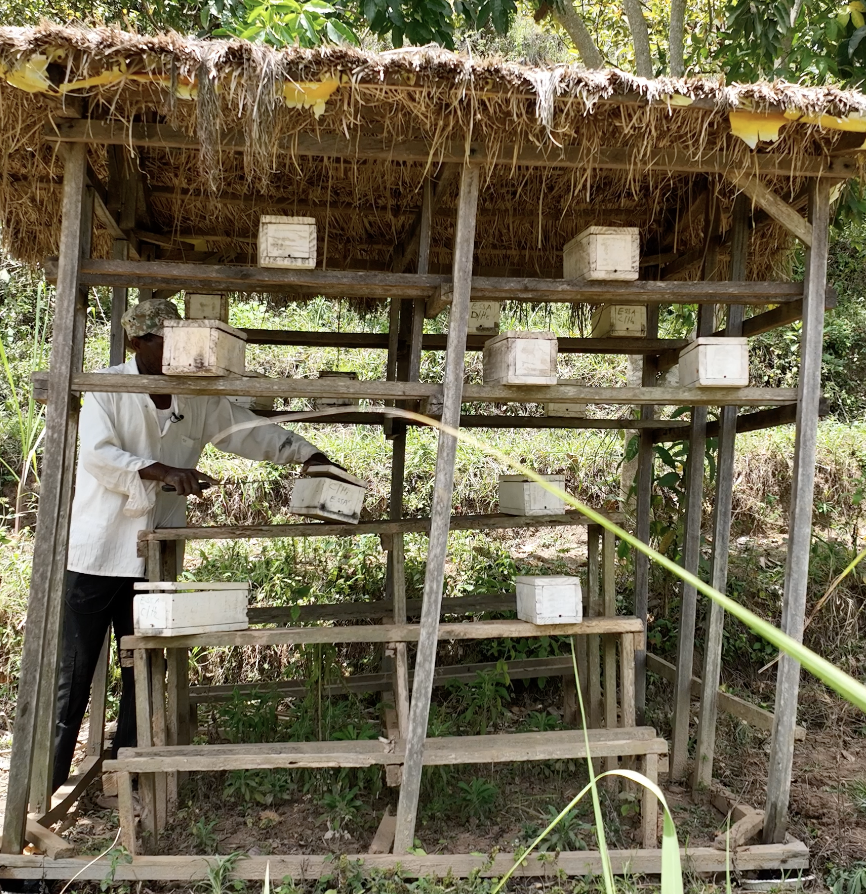
Stingless bees also enable greater inclusion. Because these bees are non-aggressive and housed in portable hives, women and young entrepreneurs can participate safely. Farmers are exploring value-added products such as propolis, bee bread, and beeswax, as well as opportunities in urban beekeeping and ecotourism, where tourists visit farms to learn about bees and pollination.
A future full of buzz
According to Dr. Kiatoko Nkoba, Across Africa, researchers have identified over 38 species of stingless bees, some endemic to East, Central, and West Africa. With growing training initiatives, conservation programs, and revival of traditional knowledge, the sector shows significant potential for growth.
Dr. Nkoba emphasizes that these tiny pollinators are not only vital for biodiversity but also hold enormous economic and ecological potential. As more farmers receive training and adopt sustainable practices, stingless bee farming is poised to expand, benefiting communities while conserving essential species.
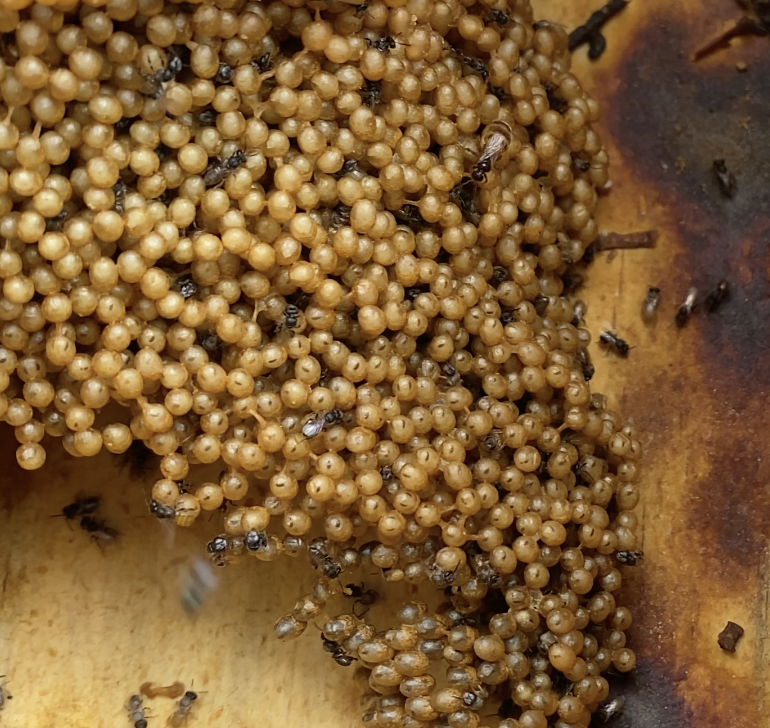
Farmers like Nyange, Mwanyombo, and young beekeepers across Kenya, like Andrew, are proving that small-scale stingless bee farming can have a big impact: providing income, conserving vital pollinators, supporting crop production, and offering medicinal honey to their communities.
In the end, these tiny insects are a powerful reminder that small changes in our approach to farming and conservation can lead to enormous benefits—for people, communities, and the planet.
For more:
https://www.youtube.com/watch?v=1WscO_fRAbE






